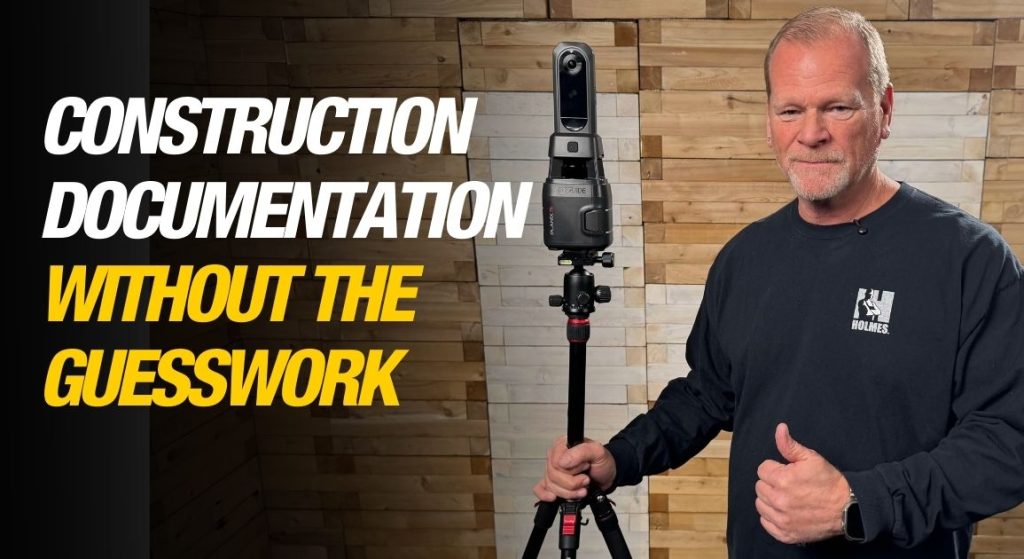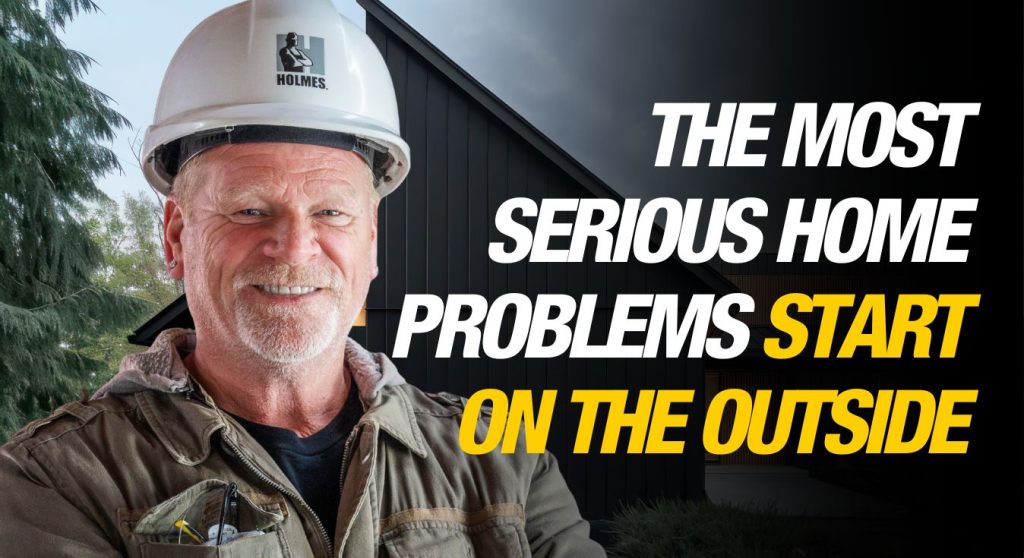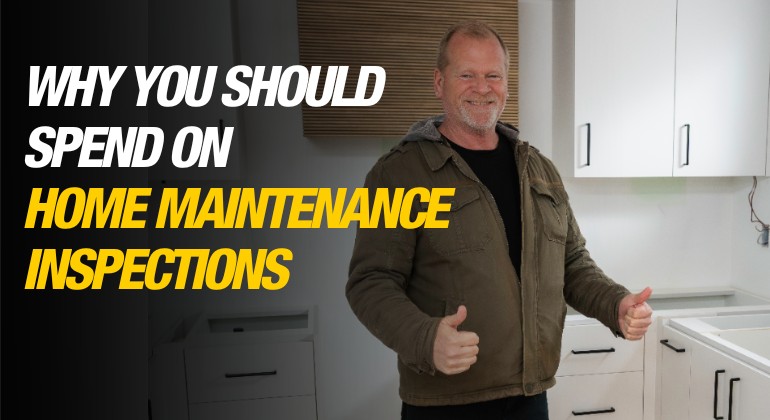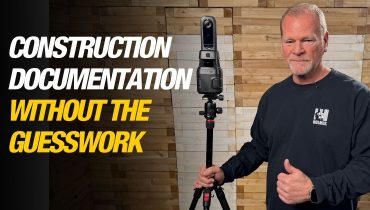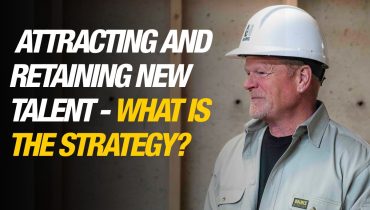I love exploring new technology—especially when it genuinely improves how we work in construction—and I recently came across one that truly impressed me, iGUIDE by Planitar Inc. In my...
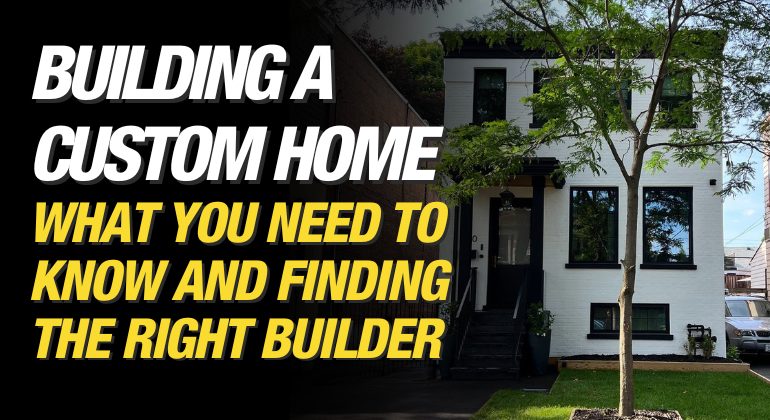
A Complete Guide To Building A Custom Home
By Mike Holmes
Mike’s Advice / Buying & Selling Your Home
Friday, November 8th, 2024 @ 1:00pm
What Should You Know Before Building A Custom Home?
Building a custom home is a big project and investment and you want to make sure you’re picking the right team to help you build your dream home RIGHT the first time. Sadly, I frequently receive emails from homeowners unhappy with their builders. Their grievances cover a wide range, including delays, poor artisanship, running over budget, and contractors quitting abruptly.
Let’s be fair now. Every narrative has two or more opposing viewpoints. There are many bad builders but just as many good ones. Indeed, there are a lot of naive and uneducated homeowners, and yes, the building industry continues to have difficulties. Sometimes unfortunate circumstances arise, and it’s not just about money but how it is spent.
But I want to help you build it right the first time. Here’s a guide on planning for a custom home build and hiring the right team.

Custom Home built by Timber Block, Holmes Approved Homes Builder
What Is The First Step In Building a Custom Home?
Before you start looking for a custom home builder, I’d suggest sitting down and creating a wish list. This involves analyzing everything you’d like to have in your new home.
Most of the issues can be prevented, but it requires a lot of work, foresight, and patience.
Here’s some great questions to ask yourself:
- What style of home do you want?
- What’s your lifestyle? Do you entertain a lot, want a games room, or need a multi-generational home?
- What are the “must have” features vs. it would be “nice to have” features
- How big is your family, and how long do you plan on living in your home?
- Is location important?
- How important is energy efficiency?
- Do you want a home with smart features?
RELATED
Here’s a guide on Building A Smart Home
Timber Block Share Why Why Starting the Design Process Early is Crucial
Are you Buying the Land for the Custom Home?
You can’t just build wherever. Bylaws and permits may impact the locations and prices of buildings or expansions.
Zoning regulations specify what can be built on a given piece of land. Specific land parcels permit the construction of commercial buildings but not residential ones. You must understand all the parameters before you purchase land to build a home on it.
RELATED
Here’s a guide from real estate experts on buying a land in Canada
Budgeting for a Custom Home
There are so many variables when it comes to custom homes that it’s nearly impossible to put a price per square metre/footage and most custom home builders don’t work like this anymore.
However, for ballparks estimates range from $450 – $900 sf2.
Of course, there are many factors, including:
- the home’s location (urban or rural, mainland or an island and also province will be a factor)
- the house size
- is it a single-car garage, double, triple or quadruple (often priced separately)
- type of roof (metal or asphalt or shanks)
- materials and finishes used
- heating and cooling system
- heated floors
- number of fireplaces
- types of windows
- porches and decks
- back-up generator
The list goes on and on and the only limit is your imagination and budget!
RELATED
Lexis Homes’ 10 Tips to Avoid Going Over Budget When Building A Custom Home
Interested in a tiny home?
A tiny home must be larger than 17.5 m2 or 188 ft2 to meet local Ontario building codes. Also, a tiny home can have a foundation or even a basement; they don’t necessarily need to be on wheels. However, always consult with your local building department and a tiny home specialist.
RELATED
What about Panelized Homes? Timber Block Explains the Panelized Home Building System
Finding the Right Custom Home Builder
You want a builder that reflects your style, but you also want a builder with a good reputation for quality work. Start by researching local builders in the area where you want your home. Check the Builder’s website, portfolios and online reviews. Also, check out any good referrals from friends and family members.
A successful home-building project starts with choosing the right builder, but you must do extensive research before signing on the dotted line. I believe in educating yourself before beginning any home project, no matter how big or small, so you must know the project’s scope and all the factors involved.
RELATED:
Timber Block’s Guide on What to Look for When Picking a Builder
Do a Background Check On The Builder
You must carefully consider your builder choices in your area, check their credentials, and ensure they have the necessary insurance, licenses, and certificates. It’s also good to check the builder’s standing with regional and national building associations, such as the Canadian Home Builders Association or their provincial equivalents, and organizations like the Better Business Bureau.
There will always be new builders popping up, but make sure the leaders have a good reputation and experience behind them. A good builder should offer you references even before you ask for them. Reach out to these references and ask about their experience working with the Builder. Did they always feel informed, and were they pleased with the quality of their work? If there were any issues, were they dealt with promptly?
I also recommend visiting a couple of the Builder’s job sites to see the working conditions and quality of work for yourself. Is the job site clean and safe? Is it secure, and are the materials and supplies protected?
What Questions Should You Ask Your Custom Home Builder
Here are some great questions to ask a potential builder:
- What was your most challenging demand from a client, and how did you handle it?
- What is your procedure for handling obstacles and delays?
- What type of custom home has the best resale value?
- Can we visit other homes you’ve built and talk with the homeowners?
Reputation and experience are everything, so consider asking the following questions:
- How long have they been in business?
- How many homes have they built?
- Ask for a list of references, and physically check out these references
- Check public records to see if there are any outstanding disputes, lawsuits or liens
Other Considerations When Picking A Builder
Feel Good About the Comfort Level
One of the most critical aspects of the home-building process is communication. Building a home takes a team, and your builder needs to be a good communicator. It’s your home, and your goals and ideas should be heard and your questions and concerns addressed. You also should have one central point of contact, like a project manager, designer or general contractor, who will answer all our questions and provide weekly updates.
Think About the Sub-trades
Just like me, I’m only as good as my team, and the same holds true when working with a builder. Your builder is only as good as the tradespeople they hire. If you can’t trust their choice of an electrician, HVAC specialist, or roofer – move on to the next Builder on your list. Builders should have a good source of sub-trades that service the area – ones they trust.
Generations Master Builder, Holmes Approved Homes Builder talks about the importance of choosing quality trades for your build.
RELATED
Think About the Products and Materials They Use
You want your custom home to be built right, using high-quality building materials, products and finishes that will ensure it is durable, energy-efficient and easy to maintain. That means protecting the building site so materials and supplies are protected from weather or theft.
RELATED
Picking the right materials for your bathroom
7 Tips To Building A Healthy Home
Common Problems Of Airtight Homes: What You Need To Know For A Healthy Living
Do You Need Insurance For Your Custom Home?
Builders risk insurance covers unintentional losses, damage, or destruction of property for which the insured has an insurable interest on an “all-risk” basis, including theft and vandalism.
This property may consist of a finished building or another structure being built, along with the supplies and materials needed to complete the project that are being stored at the job site.
If required, the contractor might ask to be added to the list of insureds. Tools and equipment owned by the contractor are not covered and need to be insured by them directly.
PRO TIP:
Homeowners should ensure they are properly insured for any liability. Again, consult with a lawyer and ask about builders’ risk insurance.
What Should You Know About Energy Efficiency?
To achieve a high-efficiency energy home, you need to have the following features:
- Triple-glazed doors and windows meet Passive Home standards
- Homes must meet strict air-tightness
- Exterior walls (R26+) and roof (R60+) must meet effective insulation ratings
- A hybrid heating system that includes a cold climate heat pump, 98% modulating variable speed furnace and highly efficient HRV

Custom home by Generations Master Builder, Holmes Approved Homes Builder
RELATED
How Are Timber Block Homes, Holmes Approved Homes, Built To Be Energy Efficient
Building a Net Zero Home in British Columbia with RDC Fine Homes, Holmes Approved Homes Builder
Think About Building for the Future?
It’s not just about energy efficiency, though this is an important topic, there are other things to consider:
- Create a home that is barrier-free and universally accessible; allowing for easy movement throughout the house; allowing for flexible use of space, such as a den that can double as a bedroom when needed;
- Minimizing the impact on the building process by using non-renewable energy resources; using low-impact materials and products, and maximizing indoor quality through long-term resilience and low maintenance.
- Design resilience to extreme weather, fire, flooding, and wind
- Design for aging-in-place

Custom home built by Lexis Homes, Holmes Approved Homes Builder
RELATED:
What Should Be Included In The Contract For A Custom Home Build
The entire cost of building a home is a considerable investment with many factors. Certain aspects may need to be clarified when building a home.
- Does the price include the land?
- What about the surveying, blueprints, insurance, demolition (if it’s a tear-down), permit costs, tree removal/trimming, fencing, and landscaping?
Everything should be a line item. Anything that you don’t see in the contract get it added to the contract. This will take out all the guessing, and everyone will be on the same page.
RELATED
Before Signing the Contract: Ensure you Get it Reviewed by a Lawyer
You must get your builder’s contract thoroughly reviewed by a lawyer before signing on the dotted line. You need to ensure the Builder’s construction contract includes the following:
- A clear guideline for your building process
- Does it cover the worst of problems?
- Does it include insurance, change order procedures, warranties, construction time, disputes, financing, Builder’s liabilities, budgets, specifications of construction, and allowances?
**Please be advised that all suggested advice does not constitute legal advice – always consult with a real estate and construction lawyer before engaging in any contract and agreement.
Always Be Present at Staged Inspections
Ensuring your home is built correctly is essential to the final outcome. However, there are many construction stages that must be inspected and documented. Ensure you understand the process well and that the Builder is accountable and present for these inspections.
Ask your builder if you can go through the final inspection. The inspector should provide you with a report – ensure you read it! It’s an excellent opportunity to ask questions and look for any areas of concern that must be addressed. It’s your guide to understanding your new home.
Local building codes are created as a guideline to ensure the minimum standards are met. I believe in always building above minimum code and so should your builder of choice. Why not build a home that is efficient, safe and durable, and that will last for generations? It just makes sense.
Be Patient with the Unexpected; It will be worth it!
A custom home is expensive and will cost you more than you think, so choose a builder who can work within your budget. But even before you hire a builder, take your time to evaluate all the things that you want your home to have and be, and have a realistic budget and expectations going into the project – this is the perfect time to create a home that is right for you and your family – not a cookie cutter version. The builder should be transparent about their pricing and provide a detailed estimate of ALL the costs, including permits, land costs, design fees, and construction costs.
And with the unexpected, you need patience. Custom-built homes take time, so homeowners must be patient and take a deep breath, maybe two breaths. But in the end, it will be worth it, as they will have a home built to their specifications that will be durable, safe, and efficient for many years to come.
Even with the best planning and research and working with a good builder, you should still expect the unexpected – they will probably be minor, but be prepared to make changes or adjust your plans as needed.
Check out the Holmes Approved Builders and Renovators.
READ NEXT:
The Ultimate Reno Guide: Top 9 Home Improvement Products In 2023


